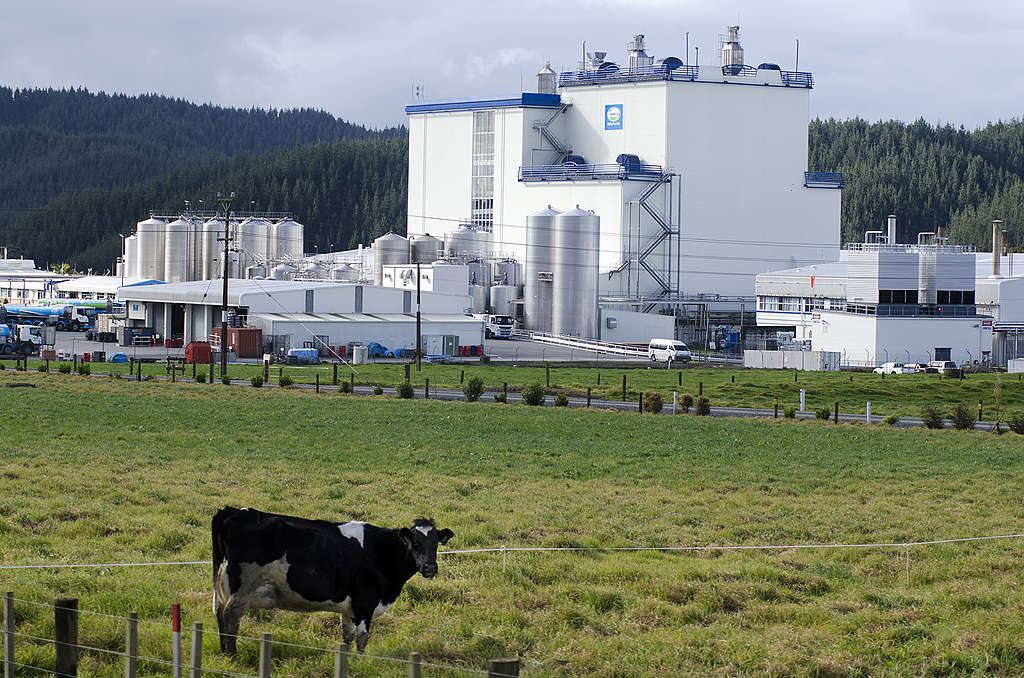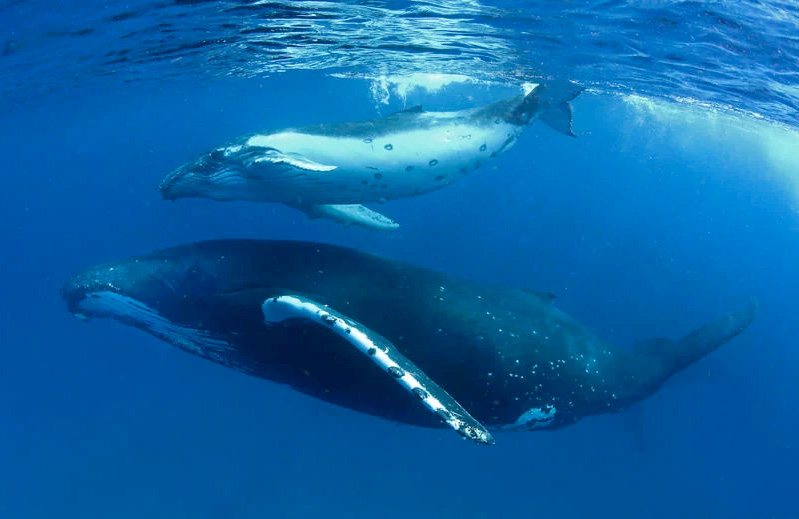The world’s leading climate scientists just released their latest assessment on the impacts of climate change and how those impacts can be adapted to. The report shows the terrible impacts of wealthy countries refusing to do what is most needed on climate – which in New Zealand means tackling the dairy industry’s massive climate pollution.
No time to dive into the thousands of pages? No worries. Here’s the five key takeaways we think you should know, about the Intergovernmental Panel on Climate Change (IPCC) report on impacts, adaptation and vulnerability.
1. There is still hope
There’s no denying that the report makes for grim reading, and some of the damage is already done. But time after time, we have seen that big – unimaginably big – change can happen when we stand together and build unstoppable people-power. There’s absolutely no reason we can’t do that now with climate change.
2. Climate risks are appearing faster and will get more severe sooner.
This really nails it. Climate change is already causing widespread losses and damages to nature and people, destroying lives, homes, livelihoods and culture. And it will get worse. Scientists have now updated their overall assessment on Reasons For Concern for future warming levels, and concluded that risks will increase to high and very high levels at lower global warming levels than previously assessed (in AR5). Already now, warming effects on ecosystems have been experienced earlier, are more widespread and with further-reaching consequences than anticipated.
3. The world is not prepared, even for the current impacts, and it is costing lives.
While attempts to adapt to the worsening climate hazards have increased globally, with benefits, most of it is still too little, too late, and not reaching those most in need. As a result, the number of people and assets exposed to climate hazards has been increasing, not declining.
Lives and homes have been lost around the world, but in highly vulnerable countries mortality from floods, drought and storms was a whopping 15 times higher in the past decade, compared to countries with very low vulnerability.
It didn’t need to be this way. Inclusive, equitable, sufficiently resourced and adequately implemented plans on adaptation and climate resilient development, that meet the needs of the most vulnerable, would save lives, homes and futures.
4. More warming brings more problems. Limiting warming to 1.5°C would substantially reduce projected losses and damages, but can not eliminate them.
Every increment of further warming is making the situation worse, pushing more people and species to their limits and beyond. Near-term actions that limit global warming to close to 1.5°C (the Paris Climate Agreement warming limit) would substantially reduce projected losses and damages to humans and ecosystems, but cannot eliminate them. Those losses and damages are unequally distributed and are not comprehensively addressed by current financial, governance and institutional arrangements, particularly in vulnerable developing countries.
5. We must restore nature and protect at least 30% of the Earth for it to protect us.
Safeguarding planetary health is fundamental for human and societal health and a precondition for climate resilient development. Diverse, self-sustaining ecosystems with healthy biodiversity provide multiple essential contributions for tackling climate change. That’s why the IPCC puts strong emphasis on the potential and needs of ecosystem-based adaptation and mitigation. Importantly, scientists emphasise that maintaining the resilience of biodiversity and ecosystem services depends on effective conservation of approximately 30% to 50% of Earth’s land, freshwater and ocean areas, including currently near-natural ecosystems.
6. This is the critical decade for securing a livable, equitable and sustainable future. Governments must move from incremental to transformational, inclusive change.
Climate change impacts and risks are becoming increasingly complex and more difficult to manage, as different hazards occur simultaneously and interact with multiple risks created by unsustainable development models and social injustice. Hence, what’s needed is not more incremental steps, but comprehensive and inclusive transformations of energy, food, industrial, urban and societal systems that deliver climate resilient, equitable development. Without any delay.
As the IPCC concludes:
“The cumulative scientific evidence is unequivocal: Climate change is a threat to human well-being and planetary health. Any further delay in concerted anticipatory global action on adaptation and mitigation will miss a brief and rapidly closing window of opportunity to secure a liveable and sustainable future for all. (very high confidence)”
Ready to move into action right away? Well here’s another five-point list on action you can take with us:
1. Act on industrial dairy. Now.
Industrial dairy is to New Zealand what coal is to Australia. The Ardern Government must cut synthetic nitrogen fertiliser, lower cow numbers and support farmers to shift to more plant-based, regenerative organic farming, to address both the climate and biodiversity crises.

Join our call on the Government to go further than the Climate Commission’s inadequate recommendations and cut climate pollution from NZ’s biggest polluter: industrial dairying.
2. Protect at least 30 percent by 2030
In March, governments are convening at the United Nations to negotiate a Global Ocean Treaty that enables the creation of protected areas in the global oceans. Later in the year, governments will gather at the United Nations Biodiversity Summit (CBD) COP15, where they must commit to protecting at least 30% of terrestrial and marine areas by 2030. This should be done in full respect of Indigenous Peoples’ and local communities’ rights.

From destructive fishing and mining, to climate change – the threats facing our oceans are growing greater by the day. We urgently need a network of ocean sanctuaries across the globe to protect them.
3. Fight for the future we deserve
Every person in this world has the right to a safe climate and a liveable future – and we believe the New Zealand Government has a duty to uphold this right, by doing its fair share on climate. We’ve seen some early moves – like the decision to ban offshore oil exploration – but not nearly enough, especially on agriculture. The current development model based on infinite growth and extraction, ignoring planetary boundaries, is unjust and obsolete. It needs to go. We deserve a future that respects people and the limits and cycles of the earth. A future where there is no power of economic gains over life; one connected with nature, rooted in a diversity of communities where decisions are made inclusively and equality is assured.
All sorts of movements are fighting for this future. Here’s one campaign you can tautoko to support Mana Whenua, uphold Te Tiriti and Protect Pūtiki Bay from exploitation from commercial interests.
Spread the word!
Show you have heard the science:
